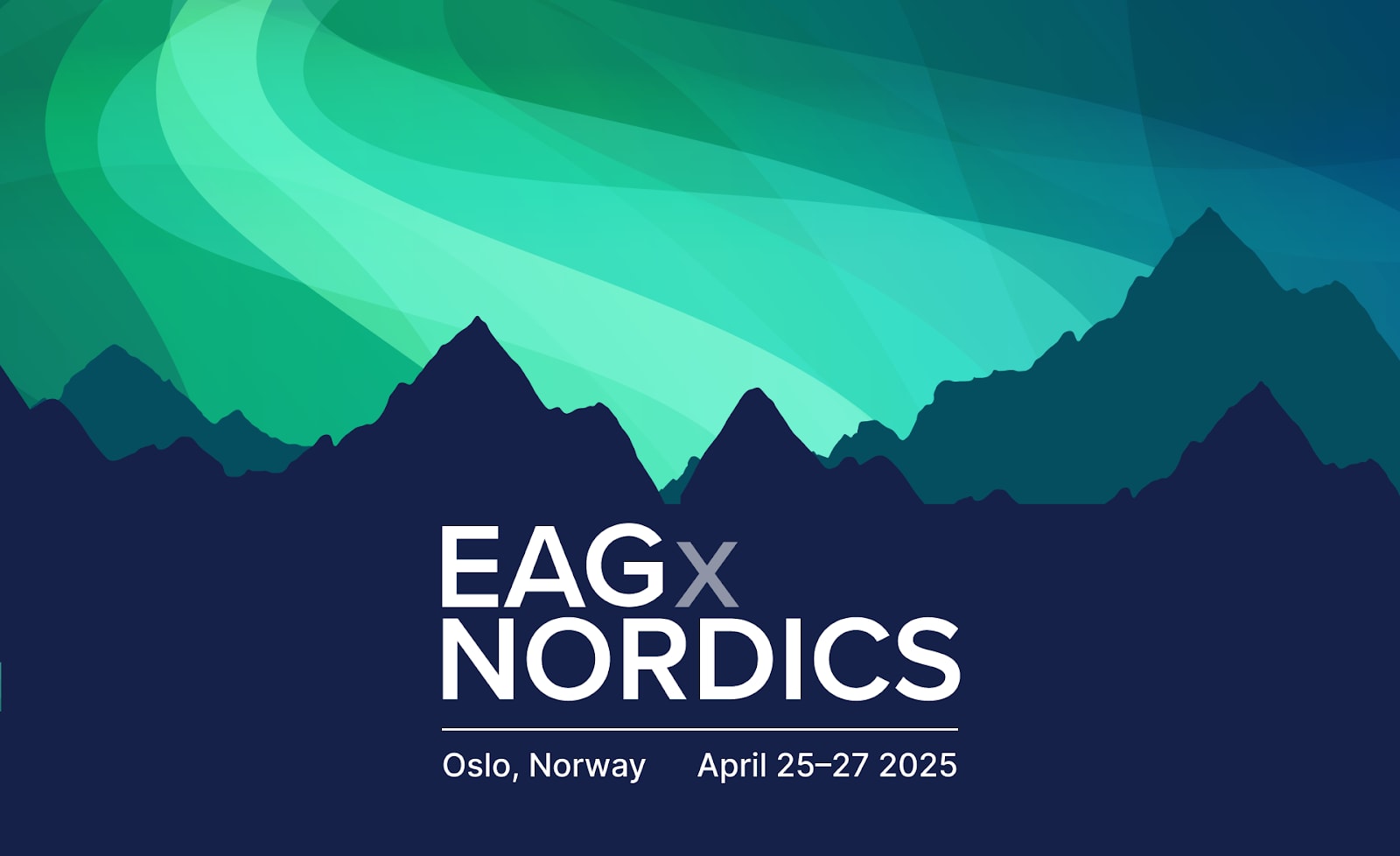EAGxNordics is by now a well-established EA conference, running for the fourth year! For the first time, we are bringing this conference to Norway! Set in one of the (admittedly less impressive) fjords of Norway, EAGxNordics will be hosted in Norway’s capital - Oslo.
Although this conference primarily is targeted for EAs in the Nordics and Baltics, there are several reasons why you might be interested in attending this EAGx in particular, even if you live outside of those regions.
Only two weeks till applications close! Apply now to attend EAGxNordics in Oslo.
Who is this event for?
If you live in or are connected to the Nordics or Baltics, are familiar with the core ideas of effective altruism, and want to explore how to act on them—then this conference is for you. While we prioritise applications with connections to the Nordics and Baltics, we also welcome experienced EAs from around the world who can bring valuable perspectives and mentorship to the event.
EAGxNordics is a great opportunity for experienced community members from outside the region who are interested in expanding their network or seeking new opportunities. There are also some strategic choices made for this conference that might be of interest to a more international audience.
EAGxNordics will cover a breadth of topics, but some of the more distinct aspects of the event - ones that might make it worth the trip from outside the region - include:
- Personal mental health & support: Understanding mental health and how to navigate challenges like perfectionism, imposter syndrome, and burnout helps create a culture where people feel supported and can contribute sustainably over the long run. That’s why mental health & psychological well-being is a critical focus at EAGxNordics. Tim LeBon will be speaking on “How to overcome perfectionism and imposter syndrome: A CBT therapist's perspective” and Ewelina Tur will host a workshop about “Impact Without Burnout”.
- Upskilling & targeted advice for organisations: workshops like “Mastering Grant Applications: Strategies for Success with EA Funders” and “Open house: Get input and feedback on your theory of change and/or impact evaluation system” (hosted by EA Sweden) will likely draw a smaller audience, but be particularly impactful to those who attend.
- Policy: The Nordics and Baltics are recognized for their leadership in evidence-based policy, from climate change to effective governance. Inspired by this, we are developing content on how policy can drive impact in key areas such as animal welfare, AI safety, and other global catastrophic risks.
Vision for the conference
Our main goal is to help form meaningful connections between EAs. If you’re new to EA, this conference will make you feel included in the community and help you find the next steps on your EA journey. If you’re an experienced EA, you’ll have plenty of opportunities to give and receive feedback, offer mentorship, and expand your network to maximise your impact.
EAGxNordics 2025 is aiming for a conference that is inclusive, supportive, and welcoming to all. We especially encourage women and underrepresented groups to apply.
Satellite events
Satellite events are unofficial social events that will take place before, during, and after the conference, and that will help you connect to more like-minded people outside of conference hours. Some examples include co-working, city tours, and after-party.
Travel support
Travel support can be requested in the application. Rooms have been booked at a nearby hostel for all travel support recipients, making it easy to meet others, keep the interesting conversations going, and commute to the event together. EAGxNordics prioritises attendees from the Nordic and Baltic regions to build the local community.
Apply by April 8 to attend EAGxNordics in Oslo: Application link.
If you have any questions or comments, don’t hesitate to reach out to nordics@eaglobalx.org.


Although seats are filling up quickly, you can apply until April 8! Additionally, there is still more travel support available, that you can request while submitting the application.